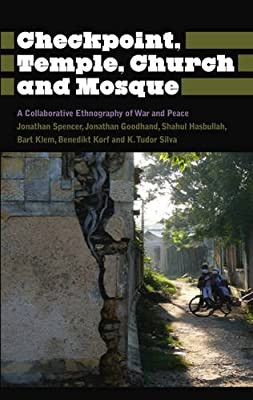
Is religion best seen as only a cause of war, or is it a source of comfort for those caught up in conflict? In Checkpoint, Temple, Church and Mosque six senior figures in Anthropology, Sociology, Geography and Development Studies set out to answer this question. Based on fieldwork conducted in Sri Lanka’s most religiously diverse and politically troubled region during the country’s civil war (1983-2009), it provides a series of new and provocative arguments about the promise of a religiously based civil society, and the strengths and weaknesses of religious organisations and religious leaders in conflict mediation. The authors argue that for people trapped in long and violent conflicts, religion ultimately plays a contradictory role, and that its institutions are themselves profoundly affected by war – producing a complex picture in which Catholic priests engage with Buddhist monks and new Muslim leaders, and where Hindu temples and Pentecostal churches offer the promise of healing.
I agree to the terms outlined below:
You agree to upload and assign Mosqpedia Database the rights to use the content worldwide and in perpetuity across all current and future media platforms. Mosqpedia Database may edit, copy, adapt and translate your contribution.
The content will be distributed under the Creative Commons Attribution-Deed – Attribution-NonCommercial-NoDerivatives 4.0 International – Creative Commons
All data will be stored in line with data protection regulations.